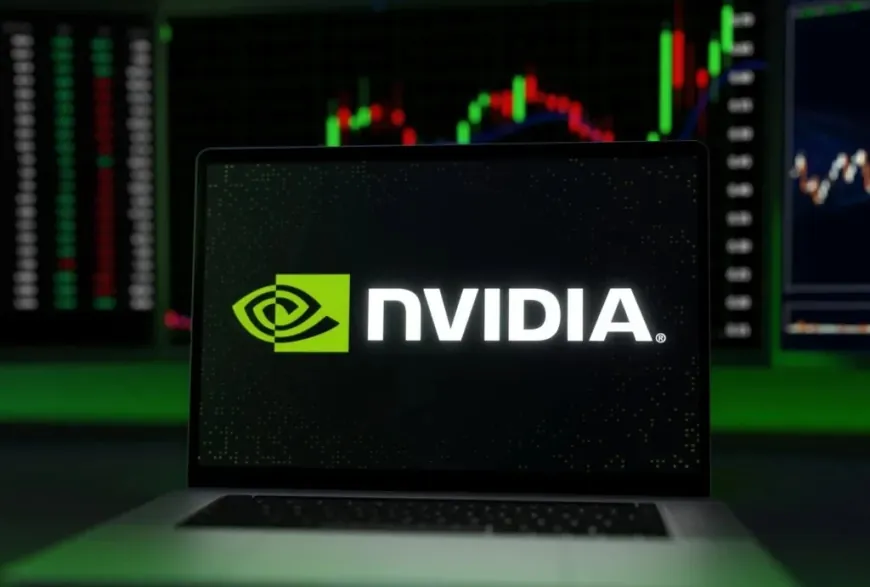Nvidia Stock Breaks Record — Analysts See $6 Trillion Valuation
Nvidia stock extends gains after record close, as analysts raise price target to $250 amid booming demand for AI chips and enterprise GPU orders.

Nvidia shares continued to climb on Thursday, rising 0.5% in early trading to build on Wednesday’s record close of $154.41. The company’s stock has rebounded sharply in recent weeks amid growing investor confidence in long-term demand for AI computing infrastructure.
The renewed optimism is being fueled by increasingly aggressive projections from Wall Street analysts. Loop Capital’s Ananda Baruah this week lifted his price target on Nvidia to $250—a level that, if reached, would push the company’s market capitalization to around $6 trillion. His target is the highest among major brokerages and signals broad confidence that Nvidia will retain its leadership as governments and hyperscale cloud providers expand generative AI deployments.
Baruah expects the global market for AI-focused chips to grow to $2 trillion by 2028, citing accelerating adoption by both public and private institutions. “We’re seeing material upside to demand forecasts,” he wrote. “Nvidia’s position at the center of that growth remains unmatched in terms of technology, delivery capacity, and margin control.”
The report also pointed to early traction for Nvidia’s Blackwell-series GPUs, which are already being adopted by large-scale AI training platforms and government research initiatives. Analysts expect Blackwell to serve as a core component of enterprise AI infrastructure over the next three years.
Separately, Bank of America’s Vivek Arya maintained a bullish stance on Nvidia’s positioning. In a client note, Arya projected global AI chip spending will rise from $201 billion in 2025 to $650 billion by the end of the decade. He emphasized that while new competitors continue to enter the space, Nvidia retains a significant advantage in chip performance, ecosystem partnerships, and manufacturing scale.
The upward revision in forecasts comes as Nvidia’s broader supply chain also shows strength. Micron Technology, which supplies high-bandwidth memory chips for Nvidia’s GPUs, beat earnings expectations in its latest quarterly results. The company attributed the beat to sustained demand from AI data center clients. Micron executives noted that orders tied to Nvidia hardware deployments remain strong heading into the second half of the year.
Recovery After Early-Year Volatility
Nvidia’s latest rally follows a period of turbulence earlier in 2024. In January, a low-cost AI model released by Chinese startup DeepSeek prompted a sharp selloff in AI-related stocks, with some investors fearing a potential slowdown in Big Tech’s AI spending. That concern was compounded by U.S. export restrictions imposed under former President Trump, which blocked Nvidia from selling high-end chips to China.
The company has since managed to overcome those setbacks, reporting robust earnings in May and securing a number of new deals in the Middle East, where AI infrastructure buildouts are expanding rapidly. Nvidia’s financials revealed higher-than-expected revenue and continued growth in enterprise and hyperscaler demand, despite the restrictions on Chinese markets.
Nvidia Maintains Edge as AI Rivals Scale Up
Nvidia’s lead in the AI chip market remains firm even as rivals like AMD, Intel, and Big Tech giants intensify their push into custom silicon. Despite the growing availability of in-house accelerators from Amazon, Google, and Meta, Nvidia’s hardware remains the go-to option for training large-scale AI models, particularly in commercial data centers.
Its dominance is reinforced by the widespread adoption of its CUDA software ecosystem, which remains deeply embedded in AI development workflows. This technical integration gives Nvidia an advantage that's difficult for competitors to replicate quickly — not just in performance, but in developer loyalty and ecosystem lock-in.
Wall Street analysts note that Nvidia’s growth is increasingly tied to infrastructure-level AI deployments, such as sovereign AI initiatives, enterprise cloud systems, and large-scale data center expansions — not just one-time hardware upgrades. This suggests the company’s valuation is being underpinned by sustained, repeatable demand, rather than speculative hype.
Also Read: Nvidia’s 800V Power Shift Could Make These 2 Stocks Soar
|
Follow iShook on Social Media for More Tips and Updates! |






























































